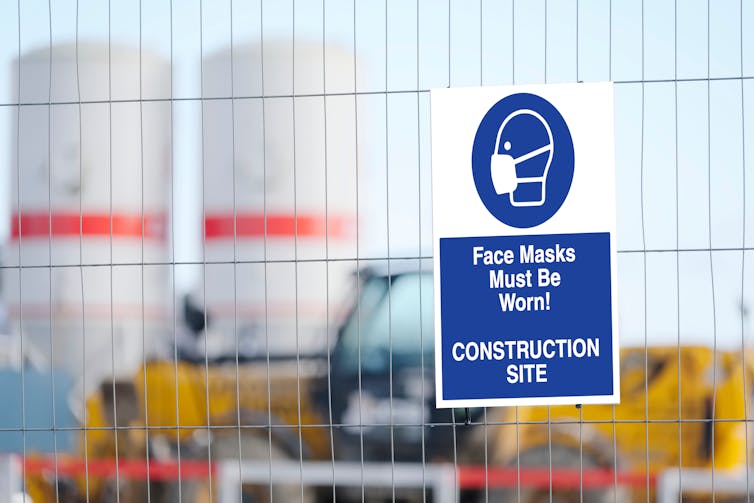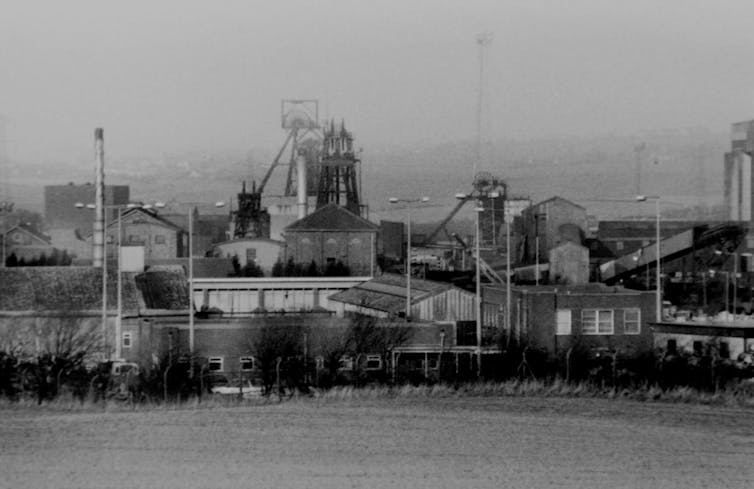
In 2019 Boris Johnson demolished the so-called “red wall” of northern England as scores of Midlands and northern towns voted Conservative for the first time in decades. Bolsover was a key brick in that red wall with the ex-miner and longest-serving Labour MP Dennis Skinner losing his seat after 49 years.
Bolsover is typical of a post-industrial northern town (we can debate whether a north Derbyshire town is “actually” the north) and ranks among the most deprived areas in the UK for education, skills, training, employment and income. It’s not alone. Among the UK’s 20 most vulnerable local authorities, 16 are in the Midlands and north-west. In the midst of a pandemic, a cost of living crisis and a deepening productivity crisis, the government’s levelling up agenda seems vital.
In 2021, the UK government launched its Build Back Better policy introducing the concept of levelling up the country. It outlined the transition to net zero and restated the UK’s commitment to reaching it by 2050 and the importance of new employment. For example, one study expects up to 1.18 million low carbon jobs by 2050. Low-carbon jobs are mostly related to clean electricity generation and low carbon heat, and include manufacturing wind turbines, installing heat pumps, maintaining infrastructure or installing lighting and control systems.
There is a skills gap though, between where we need to be and where we currently are. Within the construction sector for instance, 27 million homes require retrofitting by 2050. A recent report by the Construction Industry Training Board (CITB) confirmed research commissioned by the Local Government Association that the UK requires a step change in skills training. Around 33,000 building envelope specialists (including insulation installers) will be required by 2028, for example. Plumbing, heating, ventilation and air conditioning will require 59,000 extra people in 2028, peaking at 91,500 in 2045, while 19,500 heat pump installer trainers will be needed along with 7,000 trustmark retrofit co-ordinators.

Four clear steps
Creating these low carbon jobs could be the hope these northern towns need – but how? We have worked with Bolsover District Council to identify four clear steps needed for towns like these to level up and build back greener.
1. New courses (at the right level)
In England, 43% of the population has a level 4 and above qualification, while in Bolsover, just 21% have these qualifications. This presents a unique opportunity. Put simply, we don’t need graduates to install heat pumps, insulate homes and assess retrofit standards. Yet a recent review of courses offered by colleges in the wider region found a lack of dedicated sustainability courses or ones related to retrofit or renewable energy.
As part of the government’s Skills for Jobs white paper, some further education colleges are starting to offer Technical (T-Level) qualifications that are more vocational in nature and include an industry placement. They are designed to equip students for the new level 4 Higher Technical Qualifications (HTQ), for example, like the HTQ in Modern Methods of Construction our own university, Nottingham Trent, will soon begin offering.
Apprenticeships also offer an affordable and meaningful route to gain the key skills required to re-skill. Future courses need to be free. The white paper does promise to fund “lifelong learning”, which potentially makes retraining a more realistic option, particularly for adult learners in existing employment.
2. Partnership
Currently under review by the government, Local Enterprise Partnerships (LEPs) are non-statutory bodies responsible for local economic development in England. They are required to produce skills reports for their regions and engage educational providers, but their size and scale often makes this process unwieldy. “Hyper-local” partnerships between education providers such as the one between our university and further education college Vision West Notts College in Mansfield, another ex-mining town not far from Bolsover, offer real potential to level up through retraining and working more closely with local authorities to be responsive to local needs.

3. Dedicated support to small and medium enterprises
This group represents most businesses in the Midlands and other regions associated with post-industrial towns. These enterprises are in the early stages of their low carbon journey. Needless to say, support needs to be targeted, easy to access and fully funded.
4. Gender equality
Finally, most low carbon jobs are related to manufacturing, energy supply and construction industries, where male workers sadly still dominate. The transition to a low carbon economy therefore threatens to affect women and increase the gender gap disproportionately.
Yet Bolsover has a higher percentage of women in work, and so it is mostly women who will need retraining to move into the manufacturing, energy and construction sectors. We cannot continue replicating current structural inequalities in the low carbon new world.
Rhetoric and sloganeering will not save Bolsover or other similar towns. As the birthplace of the industrial revolution, post-industrial towns in the Midlands and the north of England have the chance to play a crucial role in the transition to the low carbon new world. We now need to see swift and real action as outlined above in order to see the old red wall turn from blue to green.
The authors were commissioned by Bolsover District Council in October 2021 to undertake a literature review of the low carbon skills gap in the Midlands and recommend strategies for addressing this. No payment has been received for the publication of this article.
This article was originally published on The Conversation. Read the original article.







